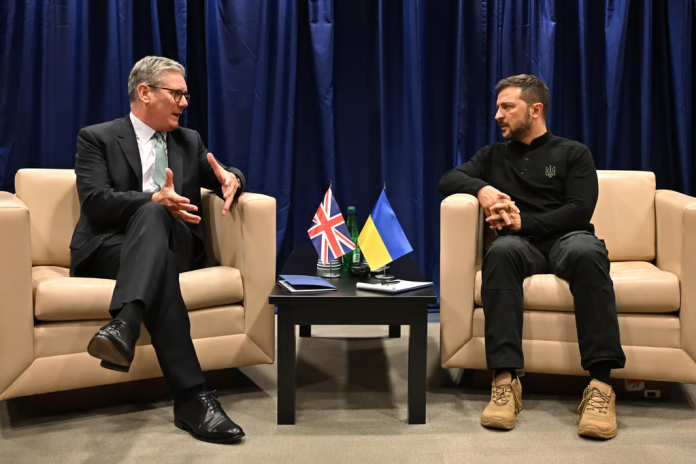Ukrainian President Volodymyr Zelensky is touring Europe in hope of gaining support for his “victory plan” after the cancelled Ramstein summit, but his allies are once again offering no guarantees in the war against Russia.
On Thursday, Zelensky met with British Prime Minister Keir Starmer and NATO Secretary General Mark Rutte in London. He then continued his tour in Paris, meeting with his French counterpart Emmanuel Macron. On Friday, he visits German Chancellor Olaf Scholz in Berlin before heading to Italy.
Kyiv’s allies are mulling whether to allow Ukraine to launch long-range weapons at Russia. Starmer’s spokesman said on Wednesday that the prime minister would be “reiterating the UK’s ironclad support for Ukraine in the face of ongoing Russian aggression,” while Rutte stressed last week that Kyiv’s right to self-defence “does not end at the border.” However, none of them have explicitly authorised strikes against targets on Russian territory.
A key summit was due to take place this weekend, but it was cancelled to allow US President Joe Biden to focus on the domestic response to Hurricane Milton currently bearing down on Florida. The meeting of the Ukraine Defence Contact Group, known as the Ramstein Format, named after the air base where it is usually held, was postponed for an unspecified time.
Political experts assume that Zelensky’s diplomatic efforts in Europe are aimed at demonstrating Ukraine’s preparedness to continue the war. The move would demonstrate Ukraine’s readiness to continue the war amid controversial reports that the president was allegedly preparing to freeze the conflict along the front line in exchange for security guarantees, including Kyiv’s accession to NATO. However, Zelensky’s administration denied such an exchange, saying that he was meeting with allies to once again present his “peace formula.”
Stalled diplomacy amid battlefield losses
Earlier, Reuters reported that Zelensky saw a chance for an end to the military conflict “in October, November and December.” Speaking at the third Ukraine-Southeast Europe summit in the Croatian city of Dubrovnik, Zelensky stated that Kyiv was counting on the support of its important allies, including the US.
In October, November and December, we have a real chance to move the situation towards peace and long-term stability. The situation on the battlefield creates an opportunity to make this choice – a choice in favour of decisive action to end the war no later than 2025.
Amid stalled diplomatic efforts, the Ukrainian authorities are staking on mobilisation. This would allow the war-torn country to accumulate combat resources depleted by the incursion into Russia’s Kursk region and the sudden loss of defensive positions in the Donetsk region.
However, forced mobilisation led to mass desertions from the battlefield, with Kyiv’s hopes of replenishing Ukraine’s thinning Armed Forces shattered. As Zelensky desperately fights for permission to strike deep into Russia with allied missiles, demoralised soldiers are abandoning the battlefield.
